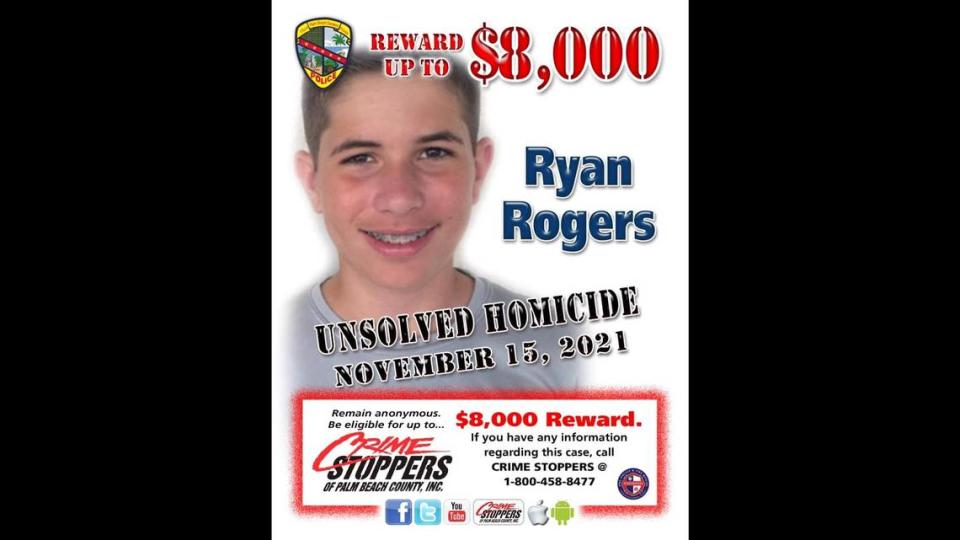Miami drifter accused in murder posted paranoid videos. Could treatment have saved Ryan’s life? | Editorial

DNA evidence and a series of strange, paranoid videos posted on YouTube led investigators to arrest a drifter in Miami this week on charges he murdered a 14-year-old Palm Beach Gardens boy, Ryan Rogers, last month.
Ryan, a high school freshman, disappeared on Nov. 15 while on his bicycle. He was found stabbed to death the next day near Interstate 95. Police said it seemed to be “a completely random act” and a case of an “innocent child victim having a chance encounter with a very violent criminal.”
Shocking, yes, and terrible — and deeply troubling. If the YouTube videos are any indication, 39-year-old Semmie Lee Williams seemed to be severely mentally ill and should not have been on the streets — any streets — in that condition. The videos, which placed him in Palm Beach Gardens around the time of the murder, also show him in other South Florida locations, including in Miami at the Camillus House homeless shelter.
Mostly titled “gang stalking,” the videos have a rambling male narrator who talks about people following him and other conspiracies, with hash tags such as #mindcontrol, #remoteneuralmonitoring and #DirectEnergyWeapon.
“They have chips planted all over my body right and they reading my mind through my ears and they be tearing up my shoes,” the voice says in one video, as reported in the Miami Herald.
We don’t know yet how long he was in Miami or whether he was part of the downtown homeless population that has been the subject of so much discussion and controversy of late. But we do know that a new resource to address the problem — the 200-bed Miami Center for Mental Health and Recovery — can’t open too soon.
The center, which may come online as soon as this spring, will provide long- and short-term housing, primary medical care, mental-health treatment, job training — and even a courtroom — to help with Miami’s estimated 1,000 homeless people, including those who are mentally ill.
We don’t know if a horrific killing would have been averted or whether Williams would have found help there. But if there is even a chance it could have made a difference in this case, we know one thing: The urgency to open it has never been greater.

 Yahoo Movies
Yahoo Movies 